May 4 – 6, 2017
University of British Columbia
Vancouver Campus
Ponderosa Commons Oak House
Please check our website regularly for updates
REGISTRATION AND PAYMENT: https://pdce-educ-payportal.sites.olt.ubc.ca/2017-iccse-registration/
Individual Paper Submissions: https://edst.educ.ubc.ca/individual-paper-proposals
Panel Proposal Submissions: https://edst.educ.ubc.ca/panel-proposals
Registration
Registration fee: $150 CAD
Registration fee for the public (non-presenting and non-academic only): $50 CAD
Registration fee for Students and Staff: $50 CAD
Contact: culturalstudies.conference@ubc.ca
Information for Participants
(additional information forthcoming)
Conference Outline
Full Conference Program
Cultural Studies and Education Essays: https://www.dropbox.com/sh/0dawug4fps6fuea/AACAtY7t4IUSPIGfbEVdJ3m2a?dl=0
KEYNOTES:
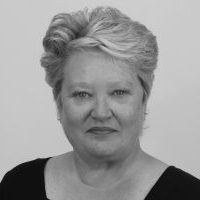
Patti Lather (Professor Emerita, Ohio State University). “Theorizing Cultural Studies of Education: Post (Foundationalist) Promises, Lost Subjects and Tiny Optimisms.”
Abstract: This paper addresses 1) the terms in use across the cross-disciplinary fields of curriculum studies, foundational studies and cultural studies of education in terms of “keeping up” with the never-ending turns in academic theory, and 2) where the attention to difference lies under the signs of these cross-disciplinary fields. To explore the latter, I focus on the dominant analytic for looking at difference these days, at least in women’s studies: intersectionality theory. To this end, i advance a tiny critical genealogy that traces the journey of intersectionality toward a kind of “small hegemony” in multicultural analysis, allowing for the messiness of identity and addressing the paradoxes that have arisen across its applications. I conclude with a note on what it means to theorize in precarious times where the fantasies we are used to have lost their purchase. In the struggle toward attachments that can sustain us in living out our relation to the loss of what is not working, this is a queer sort of strategy that recognizes we are worn out by the promises we have attached to our attachments and their failures to deliver.
Bio: Since retiring in July, 2014, Dr. Patti Lather is Professor Emerita in Educational Studies at Ohio State University with courtesy professor appointments in the Departments of Women’s, Gender and Sexuality Studies and Comparative Studies at Ohio State. Beginning in 1988, Dr. Lather taught qualitative research, feminist methodology and gender and education at Ohio State University. Her articles on feminist methodology, qualitative research and gender and education are published in leading disciplinary and interdisciplinary journals. She has authored five books: Getting Smart: Feminist Research and Pedagogy With/in the Postmodern (1991 Critics Choice Award), Troubling the Angels: Women Living with HIV/AIDS, co-authored with Chris Smithies (1998 CHOICE Outstanding Academic Title), Getting Lost: Feminist Efforts Toward a Double(d) Science (2008 Critics Choice Award), Engaging (Social) Science: Policy from the Side of the Messy (2011 Critics Choice Award), and (Post)Critical Methodologies: The Science Possible After the Critiques: The Selected Work of Patti Lather, Routledge, 2017. Her current research is focused around cultural studies of numeracy and the uses of Walter Benjamin in a materialist cultural analysis of sports and U.S. schooling.
Dr. Lather has lectured widely in international and national contexts and held a number of distinguished visiting lectureships. She has held visiting positions at the University of British Columbia, Goteborg University, York University, and the Danish Pedagogy Institute as well as a 1995 sabbatical appointment, Humanities Research Institute, University of California-Irvine, seminar on feminist research methodology. She was the recipient of a 1989 Fulbright to New Zealand and a 1993 OSU Alumni Award for Distinguished Teaching. She is a 2009 inductee of the American Educational Research Association Fellows, a 2010 recipient of the AERA Division B Lifetime Achievement Award and a 2015 recipient of the International Congress of Qualitative Inquiry Lifetime Achievement Award. Dr. Lather received her BA in English from South Dakota State University (1970), her MA in American Studies from Purdue (1972), and her Ph.D. in Curriculum and Instruction from Indiana University (1983). Prior to OSU, she taught for five years in women’s studies at Mankato State University.
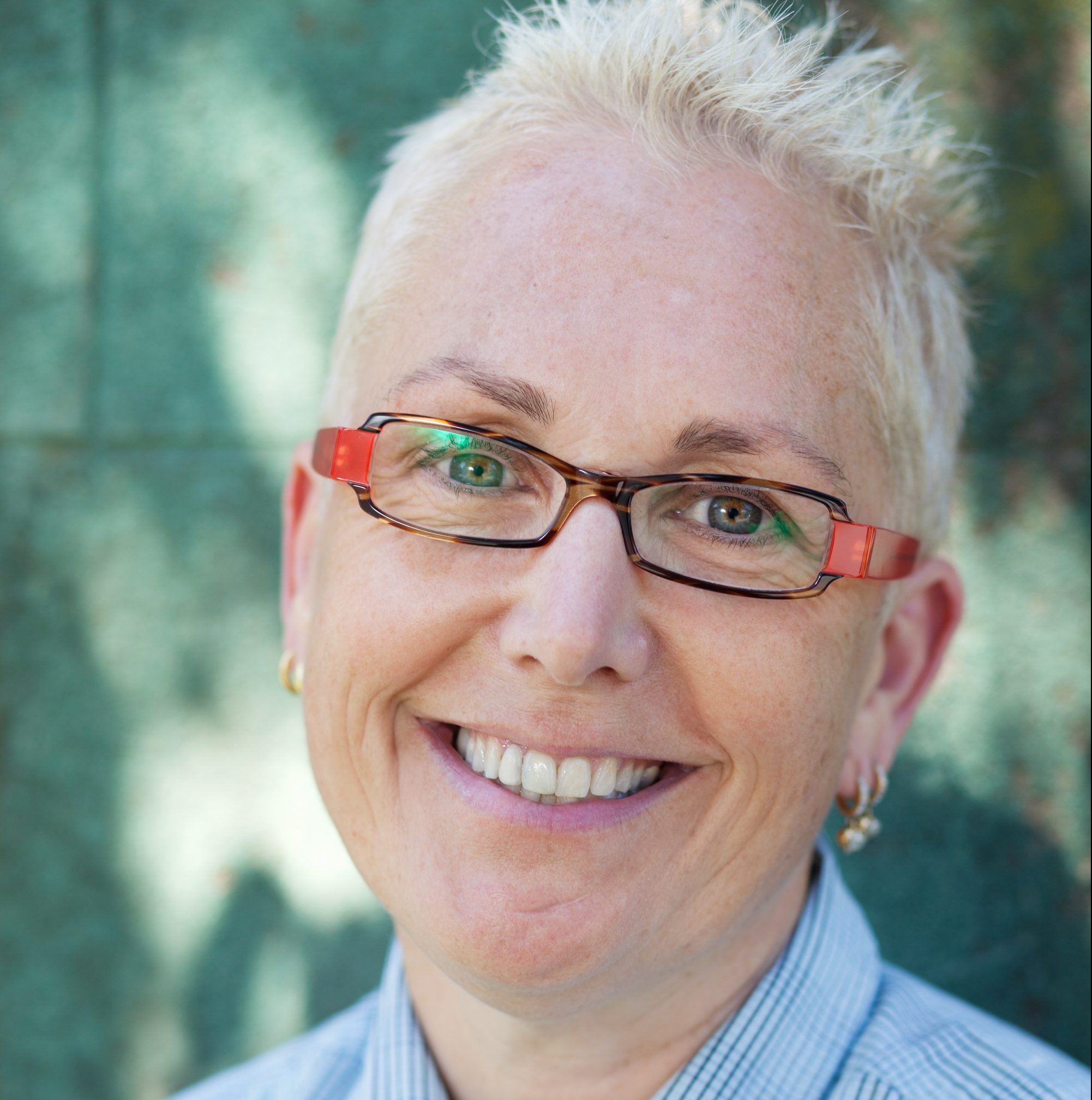
Mary Bryson, respondent to Patti Lather Keynote
Bio: Dr. Mary K. Bryson (http://ubc.academia.edu/MaryKBryson) is Senior Associate Dean, Administration, Faculty Affairs & Innovation, and Professor, Department of Language and Literacy Education in the Faculty of Education at the University of British Columbia. Dr. Bryson’s program of research is designed to contribute foundational scholarship concerning access to knowledge, gender and sexual marginality and resilience, and in so doing, to make significant contributions to a growing archive that documents the social, cultural and educational significance of networked media technologies and publics. A hallmark of the trajectory of their funded research projects is to contribute evidence concerning sexuality and gender, and the role of networked social media and information literacies that shape access to knowledge and its mobilization. At present, the Cancer’s Margins project (http://www.lgbtcancer.ca) that they direct, which is Canada’s first CIHR-funded and national investigation of sexual and gender marginality and access to cancer knowledge, answers the growing need in public health generally, and breast and gynecologic cancer care specifically, for evidence that will assist healthcare providers in the design of culturally competent care. Cancer’s Margins is an innovative arts- and community-based research project that is designed to advance our understanding of how: (i) sexuality and gender and (ii) knowledge media, shape breast and gynecologic cancer health knowledge access, and its mobilization in health and treatment decision-making. Cancer health and care professionals, and community-health organizations in Canada (and elsewhere) would benefit from a better understanding of how groups that are historically marginalized in health care settings and discourses negotiate an invariably complex choreography of health and care knowledge networks and decision-making.
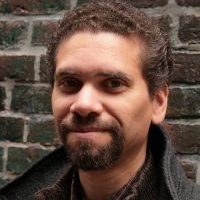
Wayde Compton (Associate Director, Creative Writing, Simon Fraser University). “Black Public Intellectuals in British Columbia: Two Centuries, Four Visions.”
Abstract: Given that the primary black cultural struggle in British Columbia is arguably convincing people that there actually are black people in British Columbia, to speak of a tradition of black public intellectuals in this province may feel improbable. However, there is a history of black British Columbians who have gone forward in both the 19th and 20th centuries with creating an intellectual context for our community. Two cases, in each respective century, are Mifflin Wistar Gibbs, one of the pioneers of the Gold Rush era, and Rosemary Brown, the long-standing NDP member of the legislative assembly. Both Gibbs and Brown engaged with their political era, but also attempted to carve out a response to local racializations. Interestingly, too, both centuries have lesser-known black thinkers who one might call would-be black public intellectuals — two who had interesting ideas, which they attempted to disseminate, to small success: Willis Bond, a self-styled orator of 19th century Victoria (nicknamed “the Bronze Philosopher”) and William H.H. Johnson, the author of Vancouver’s only slave narrative published in its time, in 1904. The ideas of these four individuals will be discussed and explored.”
Bio: Wayde Compton is the author of books of fiction, non-fiction, and poetry, and the editor of two anthologies. Three of his books – The Outer Harbour (Arsenal Pulp, 2014), After Canaan: Essays on Race, Writing, and Region (Arsenal Pulp, 2010), and The Revolving City: 51 Poems and the Stories Behind Them (Anvil-SFU Public Square, 2015) – were finalists for the City of Vancouver Book Award, and the former won in 2015. His book 49th Parallel Psalm (Arsenal Pulp, 1999) was a finalist for the Dorothy Livesay Prize. Compton is the associate director of Creative Writing in Continuing Studies at Simon Fraser University, where he administrates the Writer’s Studio.
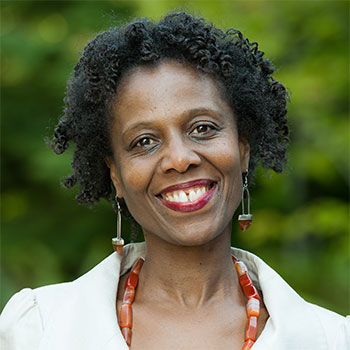
Annette Henry, respondent to Wayne Compton Keynote
Bio: Annette Henry holds the David Lam Chair in Multicultural Education at the University of British Columbia. She is a Professor in the Department of Language and Literacy Education and cross-appointed to the Social Justice Institute. Her scholarship examines race, class, language, gender and culture in socio-cultural contexts of teaching and learning in the lives of Black students and Black women teachers’ practice in Canada, the U.S. and the Caribbean. She has written extensively about diverse feminisms and conceptual and methodological research issues especially in culture-specific contexts. Current research includes a digital oral history project of contemporary Black Canadians in Vancouver and a school ethnography in Jamaica. Recent publications include an essay in Teachers College Record (2017). Henry has published several pieces on Stuart Hall, most recently an interview with Avtar Brah and Leslie Roman (2015/2016), and a biographical study of Stuart Hall’s early years in Jamaica and the U.K. (2015/2016).
Plenary Session 1 The Institutionalization of Cultural Studies (University of Washington MA in Cultural Studies; University of British Columbia, Okanagan, BA in Cultural Studies)
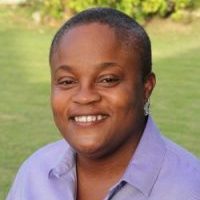
Susan Harewood, Associate Professor and Director of Cultural Studies, School of Interdisciplinary Arts & Sciences, University of Washington Bothell
Bio: Dr. Susan Harewood is the current Director of the MA in Cultural Studies program at the University of Washington Bothell. She is an Associate Professor in the School of Interdisciplinary Arts and Sciences and teaches within cultural studies, media and communication studies, and global studies. Her research focuses on music and critical media practices in the Caribbean and its diasporas. Her current research examines the formation of regional media institutions in the period leading up to and immediately following constitutional independence in the English speaking Caribbean.https://www.uwb.edu/ias/faculty-and-staff/susan-harewood
Title of Presentation: Taking Praxis Seriously: Testing the Limits of Praxis and the University (co-presentation with Rob Krabill, see below for abstract)
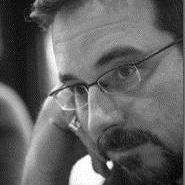
Ron Krabill, Associate Professor, School of Interdisciplinary Arts & Sciences, University of Washington Bothell
Bio: Dr. Ron Krabill is an Associate Professor in the School of Interdisciplinary Arts & Sciences, where he is also the former director of the MA in Cultural Studies program and the former Associate Dean for Graduate Education. His research examines discourses of global citizenship in higher education, the relationships between politics and media with a particular focus on South Africa, and critical, community-based pedagogies in media production. He teaches across cultural studies, media studies, African studies, and human rights, and has led study abroad programs to South Africa, Spain, and Tanzania. He is the author of Starring Mandela and Cosby: Media and the End(s) of Apartheid (Chicago, 2010), is a co-principle investigator in a major two-year grant developing Collaborative Online International Learning (COIL) projects and pedagogies across the three campuses of the University of Washington, and is a past recipient of the University of Washington Distinguished Teaching Award.
Title of Presentation: Taking Praxis Seriously: Testing the Limits of Praxis and the University (co-presentation with Susan Harewood)
Abstract: Based on our work building a new MA in Cultural Studies program at the University of Washington Bothell over the past decade, we explore the challenges generated by cultural studies’ explicit desire to look beyond the intellectual and political boundaries of the university. Stuart Hall (1992) and many others have worried about cultural studies’ complicated position within the university. We seek to continue this practice of worrying at the knots that tie cultural studies to universities’ traditions, with their roots in imperialism and its attendant practices of ordering humanity.Our experiences as faculty developing the MA in Cultural Studies at UWB have highlighted consistently four challenging contradictions. First, cultural studies’ emphasis on praxis, if taken seriously, demands a different curricular structure, a change in the timing of the educational process, and alternative notions of ‘outputs’ when compared to traditional degrees. Second, cultural studies’ emphasis on examining power relations in everyday life inevitably shines a discomfiting light on the power relations that operate within the university and within the classroom. Third, cultural studies identifies itself as being open to non-academic epistemologies while simultaneously being embedded within an academic culture that emphasizes academic forms of knowledge making over others. Finally, a cultural studies program that takes seriously these contradictions will attract both students and faculty who understand themselves as broadly engaged in cultural struggle, which often means they have one foot in the academy but another outside it.As a result, students and faculty alike often find themselves alienated from both the larger institutional structures within which they work, and from the activist, arts-based, or community-based organizations from which they come. Given these tensions, what should a university-based cultural studies program promise to prospective students, faculty, and partner organizations? What is possible for such cultural studies programs to deliver, and what are the limitations imposed by the institutional structures in which they operate?
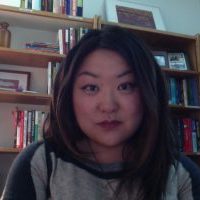
Ruthann Lee, Assistant Professor, Cultural Studies, University of British Columbia, Okanagan
Bio: Ruthann Lee has Korean ancestry and currently resides on unceded syilx territory where she works as an Assistant Professor of Cultural Studies at the University of British Columbia Okanagan. Ruthann teaches about art and media activism and has published more broadly on Indigenous and diasporic relationships in the context of settler colonialism and late global capitalism. She is keen to build feminist, queer, trans, anti-racist, and Indigenous solidarity in Cultural Studies and beyond.
Title of Presentation: Politics of Identity and Difference in Cultural Studies: Strategies and Dilemmas
Abstract: How do modern Western concepts of identity, subjectivity, and difference enable and constrain how Cultural Studies scholars engage in the work of social justice and political transformation? Despite a sophisticated understanding and theoretical establishment of identities as intersectional, students and faculty continue to make strategically essentialist claims as they navigate the contradictory dynamics of power and privilege in the university. In this talk, I examine some of the strategies and expectations of performing diversity that coincide with ongoing dilemmas of the “burden of representation” (Mercer 1990). Cultural Studies’ continued reliance on liberal humanist frameworks limits how it can imagine practices of anti-capitalist decolonization. I suggest that by learning from and engaging with Indigenous theories of relationality, Cultural Studies can more purposefully resist and challenge colonial and corporate powers within and beyond the institution.
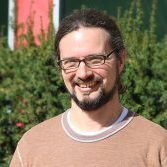
David Jefferess, Associate Professor, Cultural Studies and English, University of British Columbia, Okanagan
Bio: David Jefferess lives in the traditional and unceded territory of the syilx people. He is a non-Indigenous scholar who teaches in the areas of decolonization and global inter-relationships. His current research focuses on humanitarian discourses and the particular ways in which they imagine social relations of power. He is a co-founder of the Cultural Studies program at UBC Okanagan.
Title of Presentation: Engaged Pedagogy and the Neoliberal University
Abstract: In my contribution, I provide some critical reflections on the work of my colleagues and myself to foster models of engaged pedagogy within the Cultural Studies program at UBC’s Okanagan campus. Students often express anxiety that Cultural Studies is confined to a pedagogy of critique. We have responded to this frustration with community-focused assignments, the development of a dedicated community-engaged research course, and public education initiatives that seek to foster participatory learning spaces. Typically, these initiatives have focused on practices of decolonization and reconciliation. These efforts have been fraught, not just because they purposefully challenge normative, liberal notions of history and relation. They also depart from the norms and expectations of humanities education at the same time that they rely upon the commitments of the university to foreground modes of “experiential learning” that promise students professional careers and that posit “community partnerships” as a way of reaffirming the special role of the university in “mobilizing knowledge.” It is my hope that this presentation can help to foster further discussion about whether and how we can utilize the new opportunities afforded by the emphasis on community engagement and professional training to enable Cultural Studies to better institute its various political commitments.
Plenary Session 2 Black Arts: Performative Vancouver Cultural Studies (Vanessa Richards, Kevan “Scruffmouth” Cameron, Henry Daniel, SFU, David Chariandy, SFU).
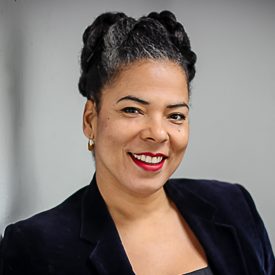
Vanessa Richards
Bio: Vanessa Richards is a musician, arts-based community-engagement facilitator, and artistic director. She is the founder and song leader of the Woodward’s Community Singers, a drop-in choir open to all people and voices, established 2009, and Creative Together, a song based facilitation process.She is interested in how participatory process and the role of the arts and artists (professional and amateur) builds place-making, the civic imagination and social sustainability. The focus of her interdisciplinary practice is on the role of song in contemporary common life.Community engagement through the arts initiatives have been developed with The Arts Club Theatre Company, Public Dreams Society, Emily Carr University of Art + Design, the Bachelor of Performing Arts degree programme at Capilano University, PHS Community Services and Simon Fraser University, while she was the Director of Community Engagement through the Arts during the initial SFU Woodward’s development.In addition to her ongoing community choir and song facilitation, other current projects include a critical work on poetry, singing and community arts, an elders chorus initiative with The Vancouver Board of Parks and Recreation and Vancouver Coastal Health in addition to a youth-led original performance being created for the Vancouver International Children’s Festival June 2017.Richards earned an MPhil in Creative Writing from Cardiff University, UK, with poetry and critical works anthologized in the UK, Holland, United States and Canada.
Title of presentation: Social Song: Collective Singing and Social Justice
Abstract: Song in common modern life is transforming. We literally stream songs into our bodies but seldom let them back out. For the first time in human history music has become most often an individual experience and creating music together is the anomaly. The surging community choir movement invites us to rediscover what is possible when people sing more often and together. Scientists are confirming what all our ancestors always knew – when we sing collectively we are changed. Our hearts synchronize, our blood changes, endorphins are released and lungs are rejuvenated. We can literally move mountains, sail the oceans, or turn wool into waterproof tweed with song as our steam powered energy. That’s what the physical body is experiencing. What the individual spirit is experiencing within the social body is equally profound. This action dialogue will explore participatory process and the role of the arts and artists in building civic imagination, social sustainability and personal transformation.
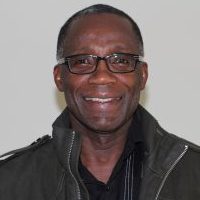
Henry Daniel – professor of dance, performance studies and new technology, at Simon Fraser University
Bio: Professor of Dance and Performance Studies in the School for the Contemporary Arts at Simon Fraser University, Dr. Daniel is a scholar, performer, choreographer, and Artistic Director of Full Performing Bodies. His research concentrates on strengthening notions of Practice-as-Research, or Research/Creation in Canada. He began his career as an actor in James Lee Wah’s San Fernando Drama Guild and continued with Derek Walcott’s Trinidad Theatre Workshop. He was also a founding member of Astor Johnson’s Repertory Dance Theatre of Trinidad and Tobago. In the USA he was a member of the Alvin Ailey American Dance Centre Workshop, Pearl Primus African American Dance Company, Frank Ashley Dance Company, Asakawalker Dance Company, the Bernhard Ballet, and soloist with the José Limón Dance Company of New York. In Germany he founded and directed Henry Daniel and Dancers while a member of TanzProjekt München, Tanztheater Freiburg, and Assistant Director, Choreographer, and Dancer for Tanztheater Münster.
Title of presentation: In the middle…somewhat dislocated
Abstract: In the middle…somewhat dislocated is a 20-minute performance work that takes place within a 12-minute looping audio/video installation. The total time the work takes to unfold is therefore quite flexible. The structure exploits the format of the academic performance paper, the art gallery exhibition, and the proscenium stage performance while not completely obeying the rules of any of these. The work also draws references from two of Dr. Daniel’s multi-year research projects; Project Barca, which examined some of the long-term consequences of Columbus’ 1492 voyage across the Atlantic, and Contemporary Nomads, a current initiative that examines 21st century transnational human movement across different types of borders. In the middle…somewhat dislocated looks at the kinds of fractures that take place within diasporic, individual, and institutional bodies when these crossings; disciplinary, cultural, racial, national, and otherwise, take place.
http://www.henrydaniel.ca
http://www.sfu.ca/sca/people/category/faculty#/Daniel
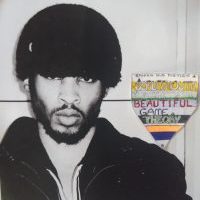
Kevan “Scruffmouth” Cameron – scribe, spoken poet, and performer
Title of presentation: Spoken dub poetics: Beautiful Game Theory – Physical Literacy at Home in Canada and abroad in the Diaspora
Abstract: The prehistory of Canada as a nation state is a saga recorded for us with tales of colonists, conquerors and settlers of European descent establishing themselves in the Americas. During Canada’s 150th anniversary of confederation, we contemplate this period of contact between Europeans and Native Americans through efforts of peace and reconciliation after the chaos and conflict of a new order manifesting in the ‘New World’. Currently, Canadian society remembers generations of genocide and residential school traumatization. In Vancouver, British Columbia, 21st century urban renewal on the traditional territories of the Tsleil-Waututh ‘The People of the Inlet’ continues to forget the indigenous inhabitants and nomadic residents that were targeted for ‘Negro removal’. From 1858 to 2008, there continues to be a Black pioneering presence in British Columbia and from 1867-2017; Canadian identity is still a product of the British Empire. If Commonwealth is used to measure ‘Canadian prehistory’; the date used to mark the beginning of this nation-state system is 1648. By 1655, Jamaica became a nation-state. 50 years prior to this, Mathieu da Costa, son of Congolese and Portugese royalty, is recorded as “the first named person of African descent” in Canada (1605). In this new paradigm, freedom was contingent on a performance or service — whether military prowess, indigenous knowledge or a unique skill set.
This pattern of freedom and struggle is a rhythmic wave charting ups and downs of Afrodescendants in the Americas for 500 years. It is found in the diasporic traditions of orality used to locate self in the vast seas of information.
Bio: Kevan Anthony Cameron, a.k.a. Scruffmouth, is a Canadian-Jamaican spoken word artist, performer, poet and scribe with the ability to disseminate ancient indigenous knowledge in contemporary forms of performative expression. He moved to BC from AB as a student-athlete at SFU where he played four years with the Men’s Soccer program. After international, intercollegiate and professional playing experiences Cameron coaches with Global Playground Soccer, directs festivals/events as founder of Black Dot Roots and Culture Collective, and performs for stage, film and television as SCRUFFMOUTH. A full member of the Association for Canadian Television and Radio Actors and the Union of BC Performers, this creative facilitator of dub poetry and writing workshops is an alumni of the Fulbright US/Canada Exchange program and alumni of Vancouver Whitecaps F.C. Kevan holds a degree of Bachelor of General Studies as well as a Certificate in Liberal Arts from Simon Fraser University; he also participated in the Ghana Field School. In 2013, He co-edited the landmark national anthology, The Great Black North: Contemporary African Canadian Poetry (blackcanadianpoetry.com).
http://blackcanadianpoetry.com/editorial-team/kevan-anthony-cameron
Writer, professor of English literature at Simon Fraser UniversityBio: David Chariandy is a fiction writer and critic who teaches in the department of English at Simon Fraser University, British Columbia, Canada. His first novel, entitled Soucouyant (Arsenal Pulp Press, 2007), was nominated for several literary prizes and awards, including the Governor General’s Award, the Scotiabank Giller Prize, the International IMPAC Dublin Literary Award, the Commonwealth Writers’ Prize for Best First Book of Canada and the Caribbean, and the Prix Carbet de la Caraïbe. His second novel, entitled Brother (M&S/Penguin Random House, 2017), will be published this fall. Chariandy’s criticism has been published in Callaloo, Topia, The Journal of West Indian Literatures, The Global South, and Postcolonial Text, as well as in The Oxford Handbook of Canadian Literature and The Routledge Guide to Anglophone Caribbean Literature. He is the co-editor with Phanuel Antwi of the forthcoming special issue of Transition Magazine highlighting Black Canadian literature. His fiction with an accompanying interview is featured in Callaloo 30.3 (2007) and Transition 113 (2014).
https://www.sfu.ca/english/faculty-staff/profiles/david-chariandy.html
Conference program: to be announced
Additional Information
- Air Travel:
The closest airport to UBC is Vancouver International Airport (YVR). - Ground Travel:
There are several options for you to easily get from Vancouver International Airport (YVR) to UBC and vice versa. - By Public Transport:
The Canada Line skytrain runs from the airport to downtown Vancouver. The Canada Line does not go to UBC, but to get to UBC campus, get off at Broadway City Hall station and take the 99 bus to the end of the line. Depending on the day of the week and time you are leaving the airport, the cost of public transit from the airport ranges from $7.75 to $9.00. - By Taxi:
If you want to take a taxi, there is 24-hour taxi service from the airport. Taxis leaving the airport for destinations around the region use a set price zone fare system ($35 to UBC zone – tips not included). - By Renting a Car:
Car rental companies are located just steps from the terminal on the ground floor of the airport’s parkade. - Parking on Campus:
Parking is available in various locations around the campus and it costs between $8-$14 per day. There are six parkades on campus: https://parking.ubc.ca/parkades .The closest parkade to the conference venue is the West Parkade (2140 Lower Mall). - Accommodation:
There are a variety of choices of accommodation at UBC campus [http://suitesatubc.com]
There are a variety of hotels, bed and breakfast options near UBC and beyond. The conference does not have specific arrangements with any and selections are at participants’ discretion. Here is some information to locate potential accommodation in town:- Bed & Breakfast: price range $100-$150
https://www.bedandbreakfast.com/vancouver-british-columbia.html - Hotel chains: price range $150-$250 https://ca.hotels.com/de169712-ba/all-hotel-brands-in-vancouver-british-columbia/
- Hotels in Richmond near the YVR airport: price range $200-$300 https://www.tripadvisor.ca/HotelsNear-g154943-qYVR-Vancouver_British_Columbia.html
- Hotels in downtown Vancouver: price range $300-$400 up https://www.expedia.ca/Downtown-Vancouver-Vancouver-Waterfront-Hotels.0-n6058432-0.Travel-Guide-Filter-Hotels
- Bed & Breakfast: price range $100-$150
- Restaurants:
There are several options for meals on UBC campus [http://www.food.ubc.ca/map/]. Major locations include the AMS Centre, University Village, and Wesbrook Village.
Beyond the UBC campus, there are many options in different areas of Vancouver [https://www.tourismvancouver.com/restaurants/]
Here are a few suggestions, varied by distance from UBC, and all with a variety of restaurants and choices of food:- Broadway area (20 minutes drive/30 minutes public transit from UBC)
- Downtown area (30 minutes drive/45 minutes public transit from UBC)
- Chinatown area (40 minutes drive/60 minutes public transit from UBC)
- Here are a few options for vegetarian food: http://boredinvancouver.com/listing/vegan-vegetarian-restaurants-in-vancouver/http://www.vancitybuzz.com/2015/08/best-vegan-restaurants-vancouver-2/
- Weather:
In May, the average maximum daytime temperature in Vancouver could be around 17ºC / 64ºF. The BC coast’s climate is the most moderate in Canada, but there is rain. It is good to prepare a range of clothing, including t-shirts, sweaters, light pants, heavy slacks. Dressing in layers is a good idea. Daytimes can be warm, but evenings can still be chilly. - City Attractions:
Vancouver is regularly rated as one of the most beautiful and livable cities in the world.
Ten must see attractions suggested by Tourism Vancouver:
Suspension Bridge / Vancouver Aquarium / Stanley Park Horse-Drawn Tours / Harbour Cruises & Events / FlyOver Canada / Vancouver Lookout / Dr. Sun Yat-Sen Classical Chinese Garden / Vancouver Art Gallery / Science World / Grouse Mountain - More Information:
https://www.tourismvancouver.com/activities/attractions/10-must-see-attractions/
Further information on the diverse neighbourhoods in Vancouver: https://www.tourismvancouver.com/vancouver/neighbourhoods/
